Mozart-Da Ponte Operas
Cosi fan tutte
Introduction
We are presented here with three of Mozart's finest, indeed three of the greatest and, rightly, most popular operas ever written. All three works are the results of collaborations between Mozart and Lorenzo da Ponte, a poet, librettist, and one-time brothel owner.
Around 12 hours of music, plus one fairly well-filled extras disc, this is the record of performances in 2006 and 2007 of 'updated' productions from the Netherlands Opera. The concept of 'updating' is something that would normally fill me with dread, or perhaps just a little foreboding, but two out of the three are not actually that bad overall, and often have some interesting things to say about how relevant the stories are today.
Jossi Wieler and Sergio Morabito have created three different worlds to state their case, and as a form of continuity, use many of the same singers for at least two different operas, with varying degrees of success.
Cosi (which da Ponte actually began working on with Antonio Salieri) is apparently set in a 1960s youth hostel (the location of which is not specified), and immediately seems similar to the Opera Factory production from the 1980s, where the characters are seen messing about on a beach during the overture.
The changes of scene are coped with very well indeed by using a rotating platform, taking us to different rooms within the 'hostel' and so dispensing with long pauses, but I'm sure any longuers would have been edited from the DVD anyway.
The updating of the plot, as with the other two operas (and with almost all 'exciting' new ideas in this field), nearly always comes a cropper when the libretto isn't similarly modernised. References to various gods and use of archaic language will always clash with what we are seeing. Also, small points such as going on about the moustaches of the 'Albanians' when there is only one on show just proves how lazy things have got - unless I've missed something terribly ironic.
Other things which got on my nerves, to a greater or lesser extent, were the condoms handed out to the girls by Despina, and the appalling treatment of the first instance of "Bella vita militar!" , initially heard on a scratchy 45 rpm, joined eventually by one or two shouts from the chorus (who are dressed for a scouting jamboree rather than a military campaign).
Ferrando having a 'moment' by forming a pear of breasts in the sand during "Un'aura amorosa" spoiled the effect a bit, but according to the directors on the extras disc, the main protagonists are all supposed to the fifteen years old (or so)...and perhaps this make things more palatable if you think about it. Perhaps I should have watched the extras first.
The ending is a satisfactory one however, again a lot like the Opera Factory production. There is not much to celebrate, despite learning one of life's great lessons that things are never are predictable and assured as we would like to think. Miserable faces abound, and previously strong relationships are falling apart as we watch. The irony of the final 'happy' chorus isn't lost.
Audio
The Dolby Surround sound is mostly very effective, but the main problem is the fact that Ingo Metzmacher has insisted that the strings play with no vibrato (and I'll moan about this for the other operas as well, just to make a point), which is all well and good if everyone makes an effort, and if they are used to playing in this style, but here it seems to make the violins retreat into the background, and when they do come to the fore, sound 'anaemic' compared to the rest of the orchestra.
Video
Not much of a problem here. The NTSC picture is quite sharp and depicts the colours and lighting very well indeed.
Conclusion
From my previous comments, it may seem that I didn't really enjoy this production, but that would be the wrong conclusion. It certainly isn't as satisfying as the production from Glyndebourne (conducted by Ivan Fischer) which I've also reviewed here, but contains some great acting and fine singing overall.
Talking of which, and in no particular order, Danielle de Niese as Despina is a great choice for this role. She is full of worldly knowledge, and plays her part as servant, friend, confidante and scheming vixen to perfection. It's also a bonus that she is able to show all these characteristics in her vocal lines as well (perfectly delivered), and is a delight to watch every time she appears.
Ferrando and Gugliemo (played by Norman Shankle and Luca Pisaroni) could not be more different. Shankle appears to try hard to play the gawky teenager (now I know that's what he was supposed to be), yet just appears awkward most of the time, and not necessarily because of the character he plays. Vocally however, he is impressive, with "Un'aura amorosa" being a high point (apart from the sand breasts of course, and the insipid 'non vib' violins at the end).
Pisaroni turns his character into the sort of person we all knew at that age (and probably still do now). Someone who can turn the charm on at the drop of a hat, and who is so full of himself, only a major reality check will bring him down to earth. The sort of person who has loads of friends, all of whom think they may become more popular just by hanging around him.
The charm works on us too, as his rogueish nature and evident physical attraction have the desired effect on whichever young lady he is wooing. He also has a great voice, and a very intelligent musical nature, finding all the interesting details in the music and making them come alive. I wish he had been directed to sing "Donne mie, la fate" towards the audience (and especially the women therein), as it has no effect whatsoever when sung to Ferrando.
Pisaroni plays the same role on the Glyndebourne Cosi (mentioned below) and this is a great opportunity to see him play the character in a completely different, yet equally convincing way.
Garry Magee (Don Alfonso) is younger than most of those who play this role, but considering the new setting, seems more of a dirty old man who likes hanging around young people, instilling his 'wisdom' on all who care to listen, and probably on those who don't as well. He has a great time with Despina, and judging by the body language probably had a fling or two with her at some point, but she has obviously learnt a few lessons.
He also has a fine voice, which is a lighter baritone than Pisaroni, so an interesting choice considering the role is written for a 'basso buffo', but is able to instil some gravitas where necessary and his call to attention regarding the infidelity of women before the Act 2 finale is nicely done.
Fiordiligi and Dorabella (Sally Matthews and Maite Beaumont) act well as young girls, showing all the flirtatiousness and blind love we would expect.
Singing-wise, they are generally very good, Matthews in particular producing a heart-rending "Come scoglio" (with a slightly reticent natural horn, but perhaps it's better to be careful than risk splitting everything), and Beaumont shining bright like an angry, mad thing in "Smanie implacabili". Unfortunately, she also has the temporary habit of singing just under the note in places, which tended to spoil arias such as "È amore un ladroncello". Both seem to thoroughly enjoy the experience though - which is nice.
A few other things are worth mentioning before I forget them.
The distance between much of the action and the conductor seems to be a problem, as ensemble in the faster passages (more noticeable when the clarinets are to the fore - although this is not meant to be critical of them, but more the recording balance) suffers quite a lot.
Metzmacher creates a very musical interpretation, but to my mind it's all too slow. The overture is a masterpiece in perpetual motion, and these pieces are always best when they're frantic (but together!). Here I get the feeling that it outstayed its welcome and everything is being played too carefully, possibly to fit in all that is happening on stage, but surely that isn't as important as the music?
It isn't just the overture either which suffers from leisurely tempi. The finale to Act 1 for example is almost painfully steady.
An interesting twist is added for the recits, which are played by a solo guitarist (Martin Kaaij), and very well too. Some little interjections of tunes from Giovanni and Figaro are not going to sound out of place, as Mozart did the same thing himself, but I bet whoever thought of that was very proud of themselves in a quietly smug way. It does nothing to advance the plot of course, but may 'connect' the three operas in a subliminal, subconsious way...sorry, sounding like a theatre director there. One major no-no however is using the guitar to end Despina's aria at the beginning of Act 2. This is nearly always going to be interrupted by premature applause anyway, but when this applause then covers the feeble guitar rather than full orchestra, then the every-so-clever concept has gone horribly wrong.
Luckily, Cosi as a whole can survive such meddling, as I've seen with productions from Peter Sellars (set in 'Despina's Diner'), the Opera Factory - third mention - I should demand payment?, and a fairly dire WNO effort that ended with everyone dancing the 'Macarena'...but perhaps this last one didn't actually survive very well.
Not a complete failure then, but only saved by much of the singing and acting..which for a work such as this, is surely a good thing.
Le nozze di Figaro
Introduction
And so to Figaro, set in a pre-revolutionary Europe, in which the plot unfolds in the domain of Count Almaviva, who is desperate to have his way with the young Susanna as is his right, what with droit-de-seigneur and all that...
..except it isn't.
Wieler and Morabito have decided yet again that the original setting is not relevant to mordern audiences, and so have updated everything to what seems to be a modern-day car showroom / headquarters of 'Alamaviva' motors.
The Count is the boss, the Contessa is his wife, and a draughtsperson / designer. Cherubino is a young mechanic, and I really have no idea about how Figaro and Susanna fit in. Antonio has become some form of security guard (far too sober for my liking), and the other 'smaller' characters are relatives and/or company lawyers.
At least this is the impression I had.
The set appears more like an aircraft hanger, and this causes problems in so many ways - although I'm sure it looked great on paper.
Audio
The main problem with the sound, and for once it has nothing to do with the style of playing demanded of the strings, is the set itself. Being what seems to be a huge metal structure, it will obviously cause echoes and reverberation where you don't want any. This is more of a nuisance when characters move around, facing areas where the sound bounces back at them. Quite often, this is so obvious that half a phrase just disappears into a musical mush which only becomes focussed when the singer faces the audience again. I'm not sure whether this was particularly obvious from the auditorium, but the microphones used for the recording show no mercy.
Video
All very clear, but it's not possible to get a good representation of what it was like in the theatre when the set is so huge. Colours, what they are - mostly the green car in the centre - are clear and vivid, and there is no obviously pixellation in the darker scenes.
Conclusion
Probably the least successful of the three productions, on so many levels.
First of all, we are told that we should believe that such a modern business would still employ the feudal rights of the man in charge of everything. The libretto is left almost unchanged and so makes a joke of what we see on stage (again!). Perhaps it is meant to be a commentary on the power wielded by those who have money, but if so, it is cheap, obvious and hardly revolutionary.
Second of all, we have the set. As I've mentioned before, it is a huge, metallic structure enclosed in a curved roof, and a long gantry running from side to side (a good few metres off the ground), together with a handy lift stage left. Characters are expected to use the space fully, otherwise it would be a waste of good metal I'm sure, and this means that any intimacy some of the situations demand is lost.
The Contessa's chambers take the form of the aforementioned gantry, and so make a nonsense of the privacy you would expect of such places.
I was quite impressed with the updating of 'Antonio the gardener' to 'Antonio the security man', who is now in charge of CCTV cameras, and the use of the playback of Cherubino leaping out of the building was well done at least. Unfortunately, this idea is overused in the extreme for the final act, as all the action we see on the DVD is via close-ups of the large monitors.
Confusion is supposed to reign here, but only for the characters in the opera, not for the audience, either in the theatre or watching the DVD. I really had no idea who was who on the screens, and whan we do finally see the stage (now bare) everyone is standing relatively still with little or no interaction between them. All the fun of the chase is therefore taken away, and it's a relief to get to the moment Almaviva asks for forgiveness.
As with the end of Cosi, no-one seems to be very happy about the outcome (as you can see below), and I'm including myself in that number.
Musically, I'm pleased to say, it isn't all bad.
Luca Pisaroni (Figaro) is a very amemable 'servant', but looks stressed through most of the work. Luckily, his singing is perhaps even better than in Cosi, and he impresses when rattling off the recits, making them more interesting and alive than many are able to do. He interacts with the rest of the cast in a very natural way, and produces the best "Aprite un po'quegli occhi" I've head in a while (and the horn just about survives the ending too!).
Danielle de Niese (Susanna) is a very attractive and vivacious maid, but I can't help feeling her voice is a little unsuited to this role, within this production anyway. She takes a bit of time to warm up, sings wonderfully throughout, but with the acoustic on offer, sounds a bit shrill (as do some others) and her voice is sometimes lost in the ensembles. Her acting is a joy to watch as ever though.
Cellia Costea (Countess Almaviva) seems a bit out of her depth here unfortunately. Another one for 'shrillness' (again, this could well be to do with the acoustic), she doesn't really settle down for a while. The biggest moment for this role is arguably "Dove sono", and is sung well enough, but again suffers in the huge set. Here, intimacy is vital and you just don't get the right effect (she is also made up to look disturbingly like Margo Leadbetter, but that's a fairly minor point, and I'm sure not deliberate).
Maite Beaumont swaps her very feminine part in Cosi for the trouser-role of Cherubino, the sexually frustrated 'page'. However hard she tries to act in a masculine manner (á la horny teenage boy), she is still one the most most feminine Cherubinos around. She has one of the more powerful voices amongst the female cast members, and this is well suited to arias such as 'Non so più cosa son...' - still tending towards the flat side of things though. I felt that "Voi che sapete" needed a completely different touch, and if I was the Countess I would have been more threatened than charmed when it was sung to me.
Garry Magee (Alamaviva) is, I think, more suited to this role than that of Don Alfonso, and displays all the necessary arrogant charm, with an underlying nastiness that comes with a character like this. Vocally, he has enough power to cut through any problems with the acoustic, and "Vedrò mentr'io" is very good despite the problems with communication between pit and stage (distance being the prime suspect here I suspect).
Of the 'smaller' roles, Charlotte Margiono (Marcellina) and Marcel Reijans (Don Basilio) stand out, and it's great to have the latter's "In quegli anni in cui val poco" included for once.
As with Cosi, Metzmacher prefers tempi which run no risk of galloping off into the sunset, although there are many places I would have preffered a little more whip. The overture especially is too steady - well played of course, but things happening on stage should fit in with the music, and not the other way around.
And as with Cosi, the continuo is also less-traditional, in that it is played by the conductor on a synthesizer. The sound isn't that horrible, being reminiscent of an old pipe organ, but when it's played accidentally (as it is at Cherubino's first appearance) you don't half notice.
I'm afraid this one is going to have to be put down to experience. I may come back to it at some point for a second chance. The best I can say is that it compares favourably to Christoph Marthaler's production, also reviewed on this site here, but is not in the same league as the fairly recent ROH perfornace, reviewed here.
Don Giovanni
Introduction
And so to the third part of this review, and to Mozart's very dark 'Dramma giocosa'. The directors have again completely rethought Da Ponte's original story, but this time I think it's actually rather good.
As a character, Don Giovanni is a loveable rogue, with a touch of sadistic rapist about him. He loves women - of all ages, and feels that, as a Libertarian, he can literally get away with murder and when he has time off his 'career', tries hard to persuade anyone who is willing to listen that this is the only way to live your life.
There can be no atoning for your sins. You have chosen your way of life, and you accept the consequences. Any hint of repentance, and you have betrayed everything you have believed in.
Wieler and Morabito have created what they descibe as a 'bed graveyard' (something akin to a DFS store, but without the 'SALE' signs). Here, the whole cast live out their lives, and, with the exception of Giovanni himself, remain on stage throughout. This includes the Commendatore, who dies in the Introduction, and remains motionless on what turns into his deathbed until Giovanni's day of reckoning.
All the characters appear to be living some sort fo dream-life, again, with the exception of Giovanni and Leporello, and it's very uncertain as to whether Giovanni actually exists or not, as seen when Donna Anna is apparently having nightmares about being attacked. The 'Bogeyman' Giovanni is sitting at the end of her bed, and doesn't touch her. Even when her father confronts our friend, and is killed for his troubles, there is no contact, or even a fight. Donna Anna appears to have been transformed into a doll, and is thrown at her father, who obligingly drops down dead.
The rest of the opera follows the same weird logic, if that's the correct term. Much is left to the imagination, such as Don Ottavio calling for help and talking to people who aren't there, though a few moments are not, such as the violent rape of Zerlina in her wedding dress.
The characters seem to decay as the work unfolds, becoming more scruffy, less attractive, bloated and greasy. It's almost as if they are becoming the living dead, after having been infected by the Don's perverted outlook on life. Even the musicians who play at the wedding wouldn't seem out of place in The Addams Family (the music played here being some of Mozart's most ingenious).
The continuo player sits at his/her harpsichord (with the costume and the wig, it's very difficult to tell) at the back of the stage, and reads a book when not playing - much as pit bands do in real life of course, but I don't think this is the actual reason. Unless I was very much mistaken, I'm pretty sure he/she played the violin in the stage band as well!
A few little details baffled me, and again it was mostly to do with the libretto and what we actually saw, but then as nothing appears to be real here, I'm sure you can take everything with a pinch of salt.
It all has a similar feel to 'Under Milk Wood', where the characters seem to drift in and out of our consciousness, or, at a slightly less cerebral level, a nightmarish Hollywood script in which the Don is a Freddy Krueger-like figure who inhabits our nightmares.
In the end of course, the lights come up and the nightmare everyone seems to have been sharing is over (a rather disappointing descent into Hell by the way, followed by a mild smattering of applause)...but is it?!
Audio
Possibly due to all the soft furnishings, the sound is much improved over the other two operas in the set. Everyone comes across well wherever they are on stage, and balance between pit and singers, and stage band, pit and singers is perfect.
Video
All very clear, although I did notice some pixellation in the darker areas of the screen, and a little bit of glare, but nothing to really upset me.
Conclusion
The first thing to do when presented with this box set was to decide in which order the three operas should be watched. I'm glad I picked Giovanni to come third, as first of all it gave me a more positive opinion on the set as a whole, and it reminded me about how wonderful the music is. This may seem a strange thing to say, it being late-Mozart and all, but some pieces become so familiar, they don't necessarily breed contempt, but you do sometimes need a break from them.
It's therefore good to come across a fresh and cohesive production, which may tend to be a tad silly (Giovanni's reappearance at the end), but has some interesting things to say about the psychology of the story at the very least.
It was also good to see Metzmacher finally release himself from the steady tempi of the other two operas. The overture is fast and dramatic and with an urgency the beginnings of Cosi amd Figaro lacked. This urgency continues throughout the opera, and the orchestral playing is always excellent.
Some recits are accompanied by a solo double bass - very unusual, but very effective, and a little more music played on a record rather than from the pit, are the only other 'oddities'.
Pietro Spagnoli (Giovanni) is not the most obvious of people to play the role, at least looks-wise. He certanly has the voice, and the stage presence, but dresses and acts like someone who really has to rely on charm and intelligence to pull the women. The casual way with which he mistreats everyone is chilling, and this is te whole point. He believes that he is able to get away with anything, and so others do too, up to a point of course - the point when they decide he has to die.
Spagnoli certainly shows no sign of tiring, and arias such as "Fin ch'han dal vino" is quite superb, as is the sense of urgency when wooing Zerlina in "Là ci darem..".
His sidekick, Leporello (played in a wonderfully seedy way by José Fardilha), is almost as much of a scoundrel as his boss, but knows he needs to get a new job. His character here is, as described by Fardilha himself, "sexually frustrated, a Peeping Tom, and quite sick". All these qualities are on show in abundance as Leporello becomes aroused by recording his master's conquests on video, and telling anyone who cares to listen what the Don gets up to.
He has a fine voice as well as being a convincing perv, and the great 'list aria', in which the names of Giovanni's conquests are read out from an old telephone dial flip-up book, is fantastic.
All the other roles are also well cast.
Myrtò Papatanasiu (Donna Anna) and Charlotte Margiono (Donna Elvira) impress immensely in their roles, producing highly charged and emotional characters who both hate and love the man who has hurt them so much. Margiono especially, is a revelation compared to the rather stuffy and frumpy Marcellina in Figaro. As for Papatanasiu, she starts brilliantly and then gets better and better throughout with some quite stunning singing.
Roberto Accurso (Masetto) is also a far more believeable character than his Antonio in Figaro, and his own performance is a vast improvement. on what ahs gone before (assuming you watch this second of course).
Even Mario Luperi (Commendatore) seems to move up several gears. Here, he doesn't shout everything out, delivering a fine and sympathetic show. We even feel something towards the statue at the end.
This is certainly the highlight of this box set.
Extras
Extras are fairly substantial, but only on the DVD itself.
The booklet contains a fairly brief extract from a Rodney Bolt book on Da Ponte and his relationship with Mozart, and a decent synopsis for each opera, although Don Giovanni's is more of a selection of short paragraphs.
It would also have been nice to have had subtitles in Italian, as this is the language of the operas themselves, but English and Dutch will suffice I'm sure.
The DVD extras on Disc 4 consist of an introduction to the 'Trilogy' (but which spends most of its time on Cosi ), and three fairly decent backstage documentaries for each of the operas persented - together with the obligatory illustrates synopses and cast galleries.
It's good to see that, for Cosi at least there was some form of educational programme involved with the production, as a group of school children are seen discussing the production with the cast and crew, and getting involved with some scenes fromthe opera themselves. It would be nice to think that this isn't a one-off and that every opera company does something similar. I'm sure they do, but as an extra on a DVD, it's great publicity.
It's also interesting to get an idea of some of the concepts presented to us by the directors themselves, and to see that not all the cast are particularly enamoured with what they are trying to get across (Luca Pisaroni epecially doesn't quite 'get' the teenage aspect of Guigliemo).
The casts of each opera introduce their own characters, and none appear too 'prima-donnaish' to take part in such an exercise.
This sort of extra is welcome in any DVD, and should really be expected for more modern productions. It definitely boosts the selling power of this set anyway.
So, overall, this is quite an achievement, and to be able to see a full 'cycle' from the same company is a bonus. If you want to get the three late-Mozart operas in one go, you could do worse, but as with any works like this, there is always room to have more than one version of each, as it's unlikely you'll be satisfied with this alone. There are many different flavours of these operas around on DVD, some better, quite a few worse, but you shouldn't be put off by any comments from me re: the 'updating' scenarios. The only real issues I have is that the set is entitled 'Mozart - Da Ponte'. If this were the case, then surely we should have had something more akin to the 18th Century settings and production values. Wieler and Morabito have altered so much of the originals that it is just as much their work, and that, in my opinion, defeats the object...
...and also, how obvious does a rape have to be, however staged, before a DVD has some sort of parental warning on it? A couple of future reviews are of opera DVDs with warnings about 'scenes of a sexual nature', or 'nudity and violence', yet perhaps because this is Mozart, whose music has been scientifically proven to expand the brains of babies and turn them into rocket scientists and generally well-rounded people*, then it doesn't matter what happens on stage.
Opera has, of course, quite often been created from stories that would not be allowed to be seen on TV before the watershed, and I was myself brought up on murder, rape, suicide and underage sex - well, what is 'Romeo and Juliet' if it hasn't at least three of these? I just find it interesting that there must be a limit to what is shown before something is put on the sleeve...at the back...in small writing. Should there be some sort of age certification on some opera/ballet DVDs? I would give that a big, fat 'No' myself, but when some types find out what is going on, you can bet any amount that they will try to stamp their own sense of morality on things.
If anyone who has an opinion on the matter reads this, or more especially those who make the decisions, then please let me know.
*this was made up by me and may not necessarily have any basis in fact (although I turned out ok...apart from knowing nothing about rockets)
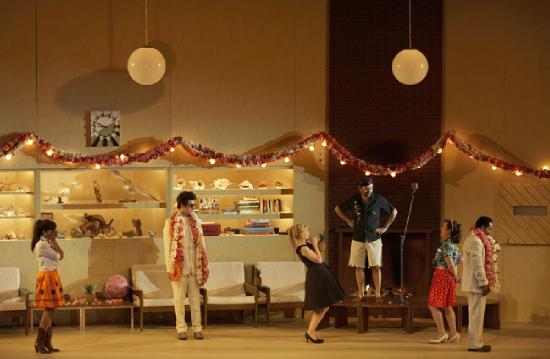
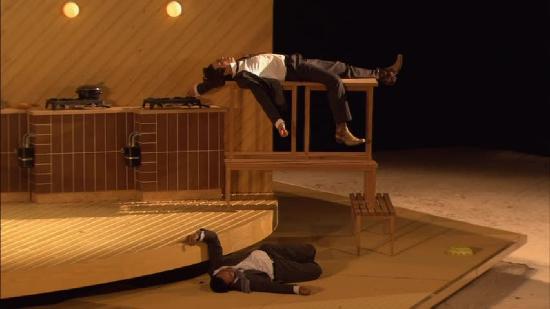
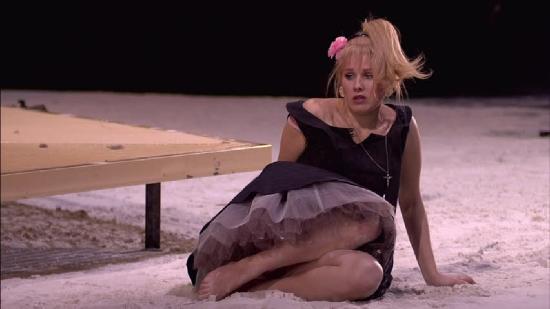
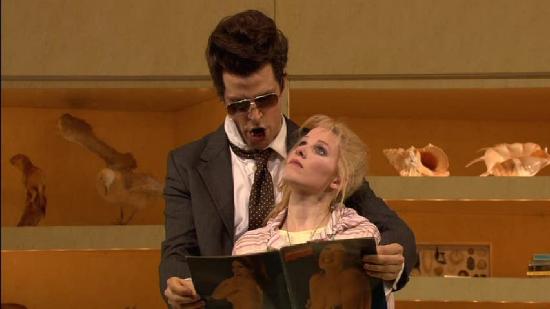
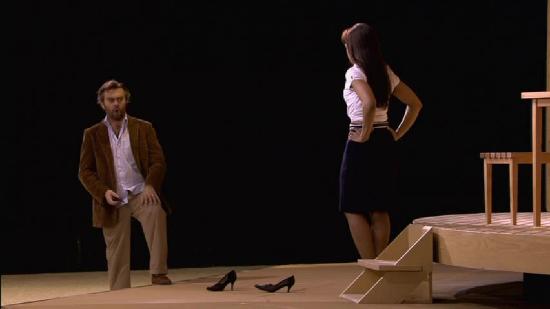
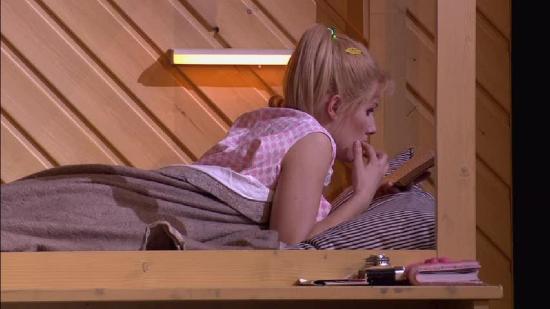
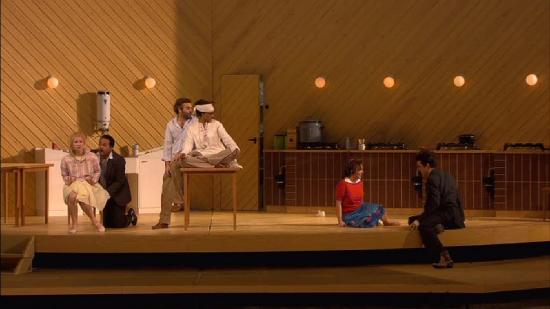
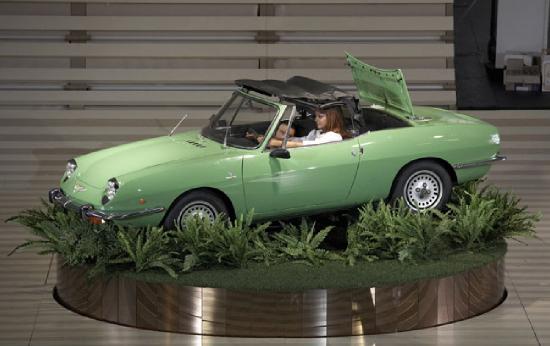
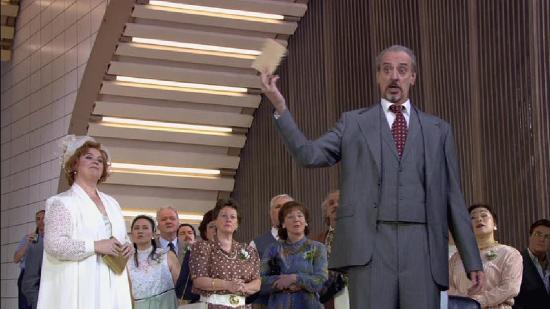
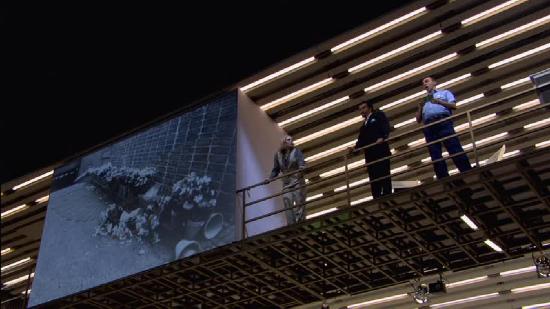
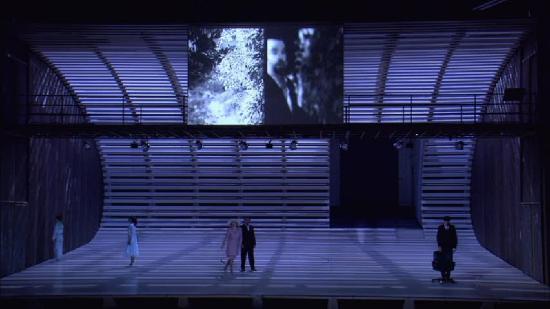
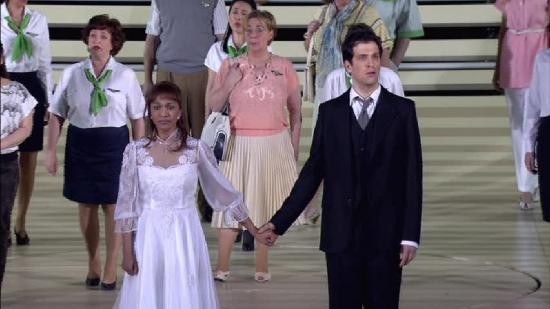
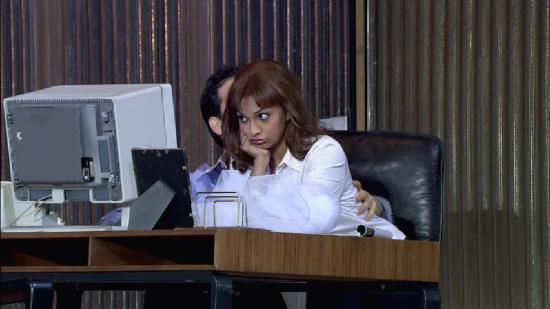
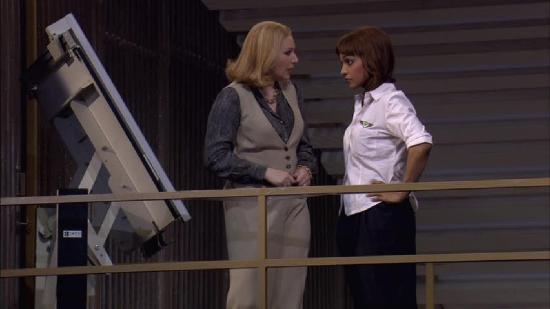
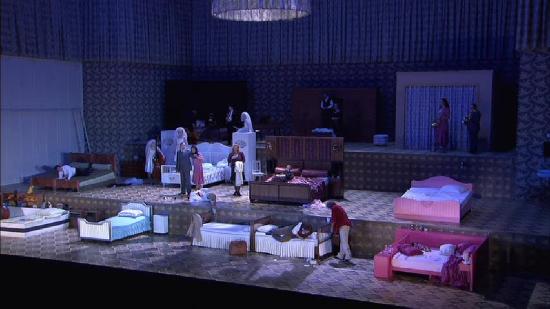
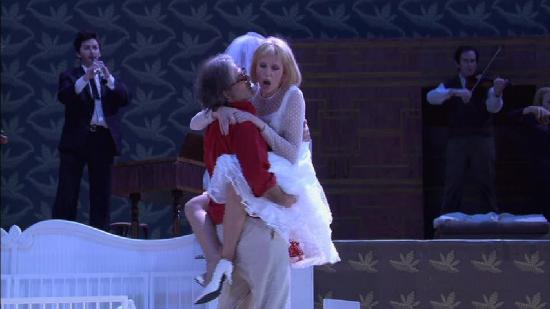
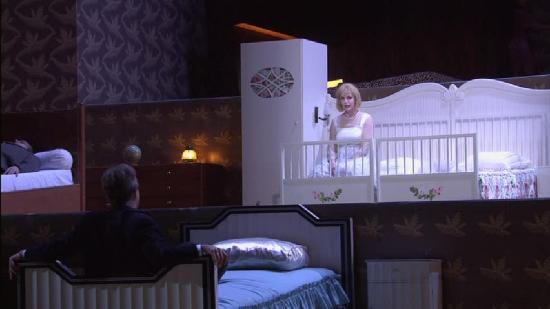
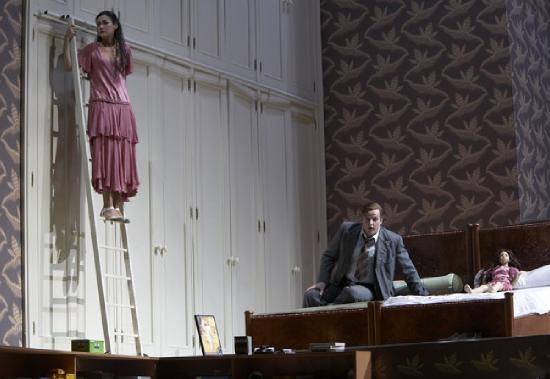
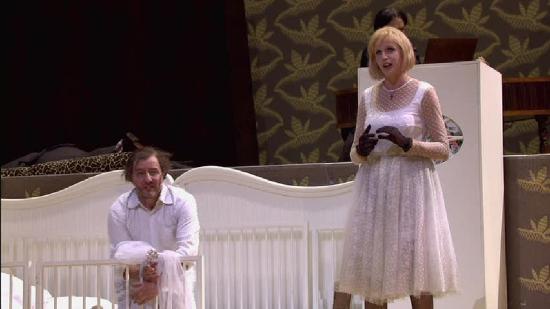
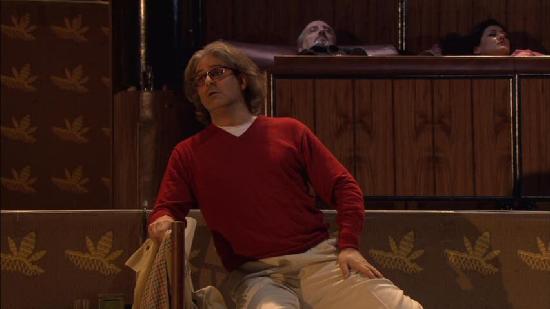
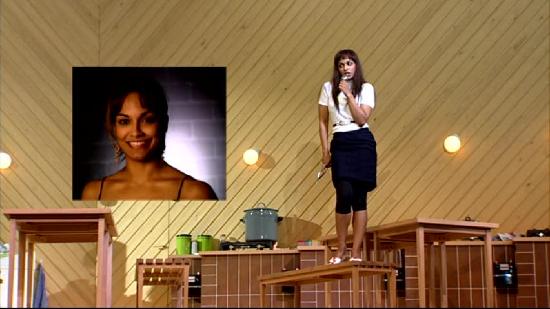
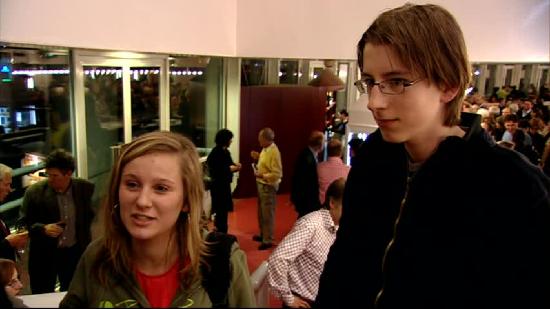
Your Opinions and Comments
Be the first to post a comment!